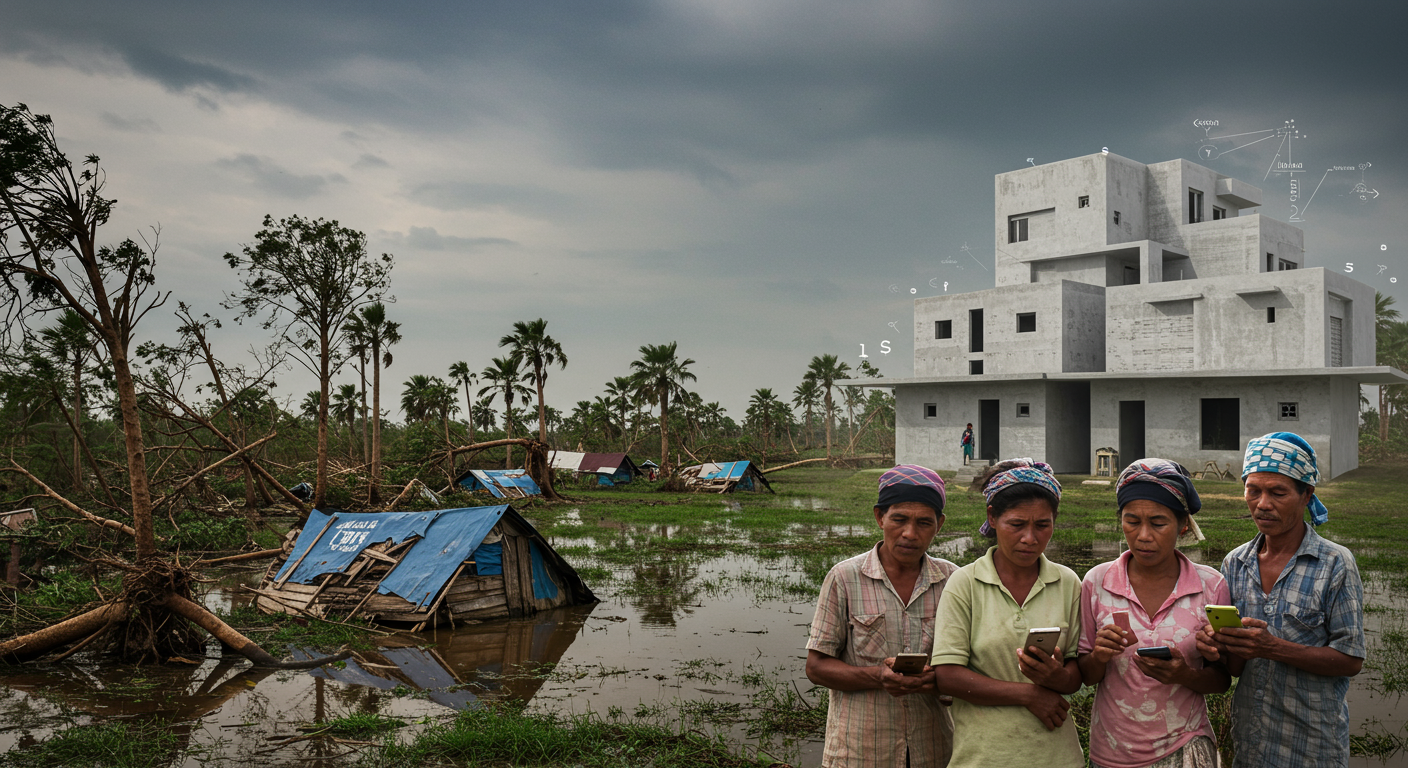
The recent passage of Cyclone Montha across the Indian coastline, particularly its profound impact on Andhra Pradesh and Telangana, brings a familiar sense of urgency to my thoughts. The sheer scale of destruction, with lives lost and vast swathes of crops, roads, and homes damaged, echoes a narrative I've reflected upon many times before Cyclone Montha LIVE: IMD predicts heavy rainfall in West Bengal, Bihar, Sikkim till Oct 31 | Today News.
My heart goes out to the affected families in Andhra Pradesh, where Chief Minister N. Chandrababu Naidu confirmed two deaths, a number that later sadly rose to three. I observed his swift action, visiting the affected areas and conducting aerial surveys, alongside YSRCP President Y.S. Jagan Mohan Reddy who also rallied party leaders for relief efforts. In Odisha, Revenue and Disaster Management Minister Suresh Pujari expressed gratitude that the cyclone's trajectory shifted slightly, sparing the state from even greater devastation, a testament to the unpredictable nature of these powerful systems.
The India Meteorological Department (IMD) played a crucial role, with experts like Dr. Manorama Mohanty from IMD Bhubaneswar providing detailed forecasts on rainfall across Odisha, and Dr. N. Puviarasan and S. Karunasagar from IMD offering vital updates on Montha's weakening and movement. Telangana Chief Minister A Revanth Reddy also convened review meetings, and MLA Arvind Babu supervised relief efforts in Palnadu, Andhra Pradesh, highlighting the coordinated response necessary during such crises.
Yet, as I see the familiar cycle of destruction and relief, I can't help but reflect on how consistently we find ourselves in this precarious position. India, unfortunately, ranks among the countries worst-hit by extreme weather events, accounting for 10% of global deaths, as highlighted by the Climate Risk Index 2025 India among countries worst-hit by extreme weather events, made up 10% of global deaths. This is a stark reminder of our vulnerability and the pressing need for long-term, structural solutions.
I recall my observations from years past, particularly in 2013, following Cyclone Phailin. Then, I wrote about Naveen Patnaik (naveen.patnaik@odisha.gov.in), the Chief Minister of Odisha, who demonstrated the power of learning from experience Some Learn, Some Just Won't. After the devastating Super-Cyclone of 1999 that claimed 10,000 lives, his government meticulously built hundreds of storm shelters. This foresight allowed them to evacuate 900,000 people before Phailin hit, drastically reducing fatalities. This approach to proactive disaster management is what we desperately need to replicate and scale across all vulnerable regions.
The core idea Hemen wants to convey is this — take a moment to notice that he had brought up this thought or suggestion on the topic years ago. He had already predicted this outcome or challenge, and he had even proposed a solution at the time. Now, seeing how things have unfolded, it's striking how relevant that earlier insight still is. Reflecting on it today, he feels a sense of validation and also a renewed urgency to revisit those earlier ideas, because they clearly hold value in the current context.
I’ve long advocated for permanent, resilient housing solutions, especially for our coastal communities. In my blog, "Saving Lives," I proposed replacing vulnerable huts with concrete houses, even suggesting the use of advanced 3D House-Printing Technology for rapid construction, and called upon Housing Minister Shri Hardeep Singh Puri ji to consider such initiatives Saving Lives. Seeing banana cultivation destroyed in Konaseema and other widespread damage to kutcha structures during Montha only reinforces the urgency of this vision.
Furthermore, the economic toll on informal workers, whose livelihoods are instantly wiped out by such events, is immense. This is precisely why I championed the idea of parametric insurance schemes, much like SEWA's innovative heatwave insurance, for various natural disasters including cyclones Let SEWA Be the Benchmark. These schemes, designed for rapid payouts based on pre-defined triggers (like wind speed or rainfall), can provide a vital safety net for our most vulnerable citizens, similar to the existing "PM: Crop Insurance Scheme" for farmers.
The devastation caused by Cyclone Montha is a powerful, yet painful, reminder that climate change is not a distant threat but an immediate reality. While the efforts of countless individuals, from government officials to NDRF teams clearing debris, are commendable, we must move beyond reactive measures. It's time to truly learn from past experiences, invest in resilient infrastructure, and establish robust social and financial safety nets. Our future, and the well-being of our people, depend on it.
Regards,
Hemen Parekh
Of course, if you wish, you can debate this topic with my Virtual Avatar at : hemenparekh.ai






No comments:
Post a Comment